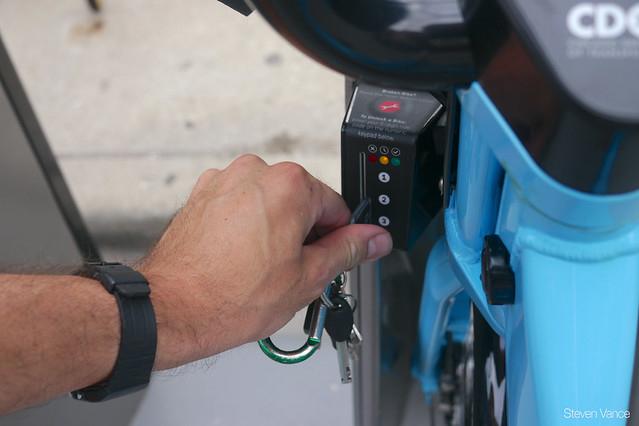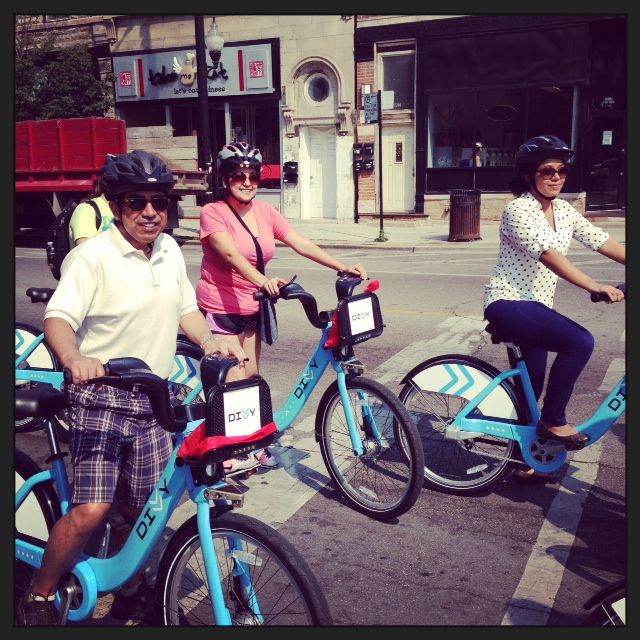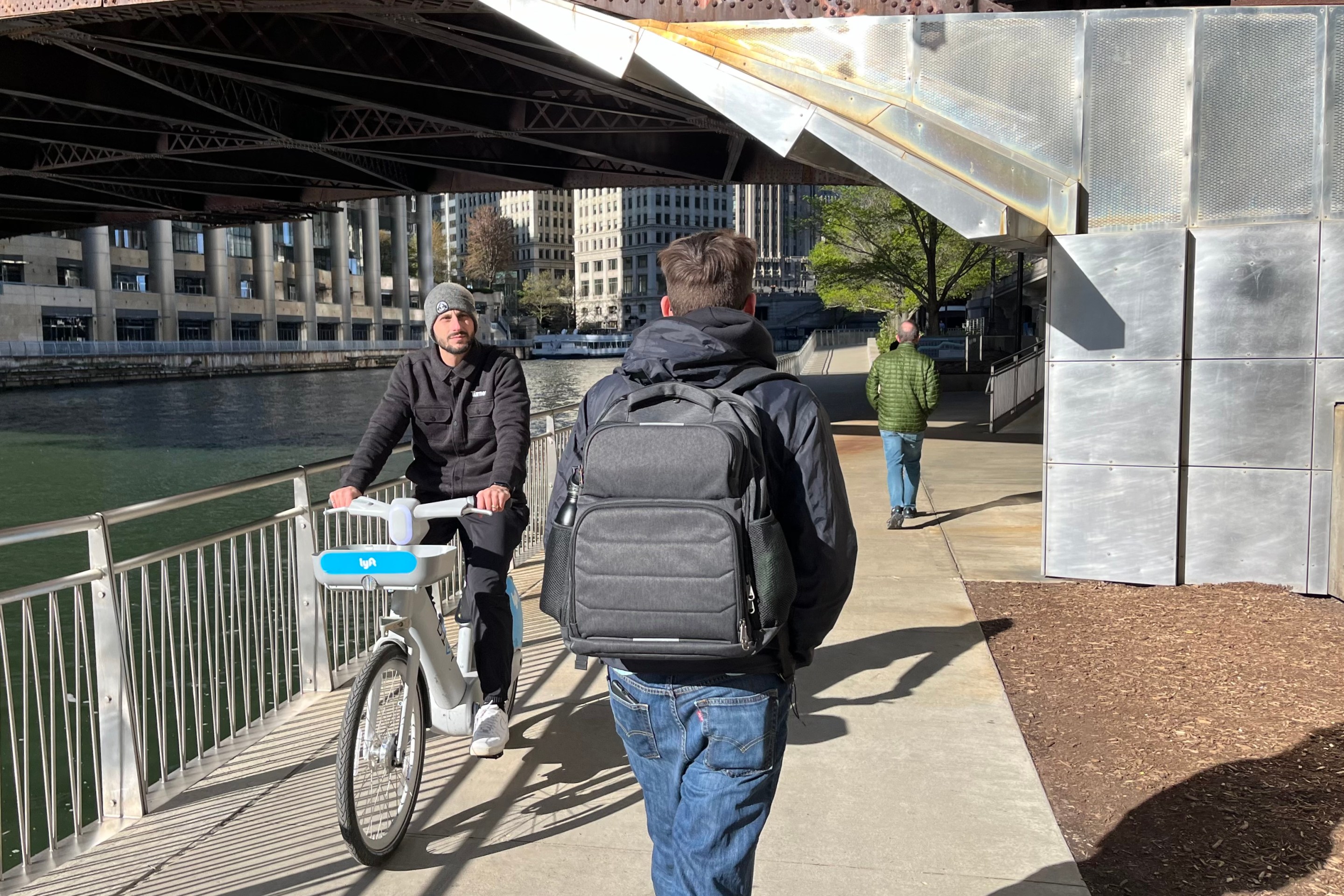To use Divvy you must have a debit or credit card. Currently, there's no way around that, so even though an annual Divvy pass is a bargain at $75, the system is unavailable for many Chicagoans. A significant share of city households -- 12.7 percent -- don't have bank accounts, according to graduate research by Michael Carney at the University of Illinois at Chicago's College of Urban Planning and Public Affairs. That translates to at least 135,000 people and perhaps more than twice that number, Carney's demographic research indicates.
The Chicago Department of Transportation has set out to make Divvy more accessible to "unbanked" residents. CDOT's strategy is to partner with organizations that can take on the liability of the membership and replacement bike costs, and to promote Bank On Chicago, a program run by the city treasurer in which banks reduce the barriers to opening a checking account.
CDOT Deputy Commissioner Scott Kubly says the agency has "talked to a few nonprofits and talked to a few churches" but that interest has been light so far. Making Divvy accessible to unbanked Chicagoans, he said, has been the department's biggest challenge in rolling out the bike-share system. (The second biggest challenge: siting stations.)
One issue the organizations have had with the proposed arrangement, Kubly said, is the perceived risk involved. "I think it's a question from shared liability standpoint, I think there's some concern about that," he said. "I think there's a desire to see how it rolls out a little further." Kubly pointed out that the department can focus more intently on the issue after the rollout of the first 300 stations this year.
After interning at CDOT in 2012 and helping to site bike-share stations, Carney looked into how other bike-share programs in the United States were engaging unbanked residents as part of his graduate studies. Carney reviewed the efforts of seven current and planned bike-share programs across the continent and produced a report [PDF] including strategies that CDOT has adopted.
Here's how Carney summarized the three major recommendations to Streetsblog:
- Lower fees: Many of the bike share professionals I spoke to found that costs of membership were a barrier for many residents, so they offered annual memberships for a lower charge. The City should offer a reduced membership fee for people who qualify as low-income. This income verification could be tied to eligibility for other forms of public assistance, such as LINK or Housing Choice Vouchers.
- Hedge risk: Without a credit or debit card, unbanked bike-share members cannot be held accountable for bikes that are lost, stolen, or damaged when in their care. The City should establish partnerships (public and/or private) to subsidize the cost of offering reduced fee memberships and to hedge against the risk of losing bikes.
- Conduct proper outreach: The City should partner with bike advocacy and community groups to engage Chicagoans at the grass-roots level and educate them about the benefits of bike share and how they can join. Nice Ride MN in the Twin Cities works with non-profit partners to set up educational bike rides that take people on a half hour tour, show them what they can do with the system, and how they can sign up.
These recommendations have informed CDOT's strategy. "I think all three of his recommendations are being implemented," Kubly said.
The agency is talking to different human service providers -- choosing to keep the names private -- about taking on the liability for the bike's replacement cost, promoting Bank on Chicago to increase the number of people with bank accounts, and talking to the Department of Child and Family Services to promote Divvy and banking among their clients. In terms of outreach, Kubly said that CDOT and Divvy staff have gone to meetings in Lawndale and Bronzeville, talked to teens at the Kleo community center, rode in the Bud Billiken parade, and conducted rides in the 3rd ward with Alderman Pat Dowell and 25th Ward with Alderman Danny Solis.
One development that may also play a role: Ventra could make Divvy accessible to more people because it provides a debit card without a bank account (the cards can be loaded with cash at designated retail stores). It's too early to say whether this will make a difference for Divvy, but Kubly said CDOT has started conversations with CTA about how Ventra could be integrated into the Divvy system.
Updated 9-9-13 to add a photo of the Divvy ride with Alderman Solis.




